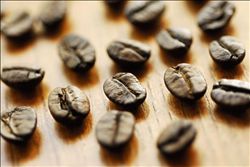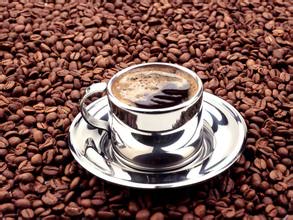Introduction to the location of the main coffee farms in the Blue Mountain Coffee area of Jamaica
Some small estates also grow Blue Mountain Coffee, such as Wallenford Estarte, Silver Hill Eatate, and J. Martinez) Atlanta Manor (Atlantn Estate), etc. Even the largest landowners in the region are small-scale growers by international standards, many of whom are small landowners whose families have been working on the land for two centuries. The coffee industry in Jamaica faces a series of problems, such as the impact of hurricanes, increased labor costs and difficult mechanization of terraces. It is difficult to rationalize planting on many small estates and farms.
Jamaican Blue Mountain Coffee, however, Blue Mountain Coffee is a coffee that coffee retailers that value credibility need to stock up anyway. The major retailer in the UK said: no matter what the price, he will continue to sell Blue Mountain coffee all year round because he has many customers who only recognize "Blue Mountain".
As Japan has always invested in the Jamaican coffee industry, the cultivation of Blue Mountain Coffee is now mostly controlled by the Japanese, and there is no doubt that they have also won the right of priority to buy Blue Mountain Coffee. In 1992, Jamaica sold 688 tons of Blue Mountain coffee to Japan, 75 tons to the United States and 59 tons to Britain. Now, 90% of the harvested Blue Mountain coffee is bought by the Japanese. Now that the rest of the world can only get 10% of Blue Mountain, Blue Mountain coffee is always in short supply, regardless of the price. In the UK, Langford Brothers Brothers has been the only supplier for many years. Later, the Edmunds Group (Edmonds Group) also received a supply from Jamaica's Salda Food Company (Salda Foods).
The difference in transportation between Blue Mountain Coffee and other coffee is that it is transported in a 70kg barrel, a replica of the Bonifieur barrel made in Guadeloupe's Bug Century, which was originally used to carry flour from England to Jamaica, usually with a trademark and the name of the manufacturer. The Coffee Industry Council issues certificates for all authentic Jamaican coffee and stamps the exporters with approval stamps.
The Jamaican government used to insist that all Blue Mountain coffee is roasted in Jamaica to ensure that the quality remains the same. In fact, baking is a fine art, and it takes experience, training and expensive facilities to do a good job. From the consumer's point of view, coffee beans should be obtained and drunk immediately after baking. Coffee roasting in Jamaica is unlikely to meet this requirement. Now the raw coffee beans of Jamaica can be exported.

Important Notice :
前街咖啡 FrontStreet Coffee has moved to new addredd:
FrontStreet Coffee Address: 315,Donghua East Road,GuangZhou
Tel:020 38364473
- Prev

Introduction to the producing area of Manning Coffee Bean Manor in Indonesia
Manning contains a kind of masculinity, drinking with a feeling of dripping, wanton and gallop, which fascinates men and symbolizes a great spirit of tenacity and boldness. Some people say that Manning is thick and strong, the Caesar in coffee, whose iron hoofs are broken into the ancient desolation and the distant horizon of the yellow sand; some people say that Manning is gentle and easygoing. No.
- Next

Introduction of Puerto Rico Coffee Bean production area San Pedro Manor introduces Puerto Rico coffee beans
The soil is of high quality. Some old varieties of Arabica coffee beans are grown here, and although the yield is lower than that of other varieties, they are generally of high quality. People here have been using an ecological and intensive planting method, using only some low-toxic fertilizers and chemicals, and taking mixed crop planting measures to make the soil more fertile. When it's time to pick coffee beans, people
Related
- Does Rose Summer choose Blue, Green or Red? Detailed explanation of Rose Summer Coffee plots and Classification in Panamanian Jade Manor
- What is the difference between the origin, producing area, processing plant, cooperative and manor of coffee beans?
- How fine does the espresso powder fit? how to grind the espresso?
- Sca coffee roasting degree color card coffee roasting degree 8 roasting color values what do you mean?
- The practice of lattes: how to make lattes at home
- Introduction to Indonesian Fine Coffee beans-- Java Coffee producing area of Indonesian Arabica Coffee
- How much will the flavor of light and medium roasted rose summer be expressed? What baking level is rose summer suitable for?
- Introduction to the characteristics of washing, sun-drying or wet-planing coffee commonly used in Mantenin, Indonesia
- Price characteristics of Arabica Coffee Bean Starbucks introduction to Manning Coffee Bean Taste producing area Variety Manor
- What is the authentic Yega flavor? What are the flavor characteristics of the really excellent Yejasuffi coffee beans?

